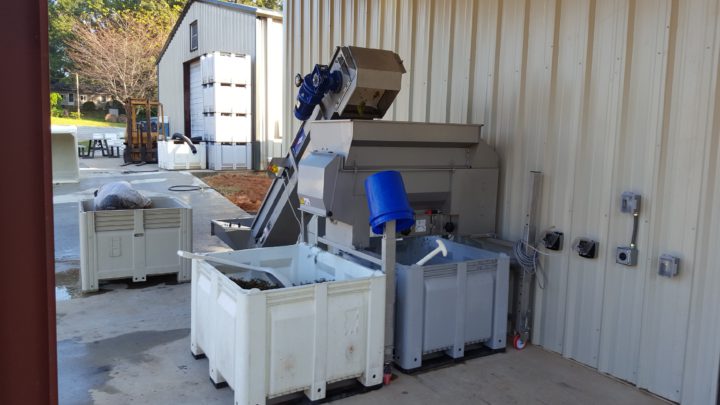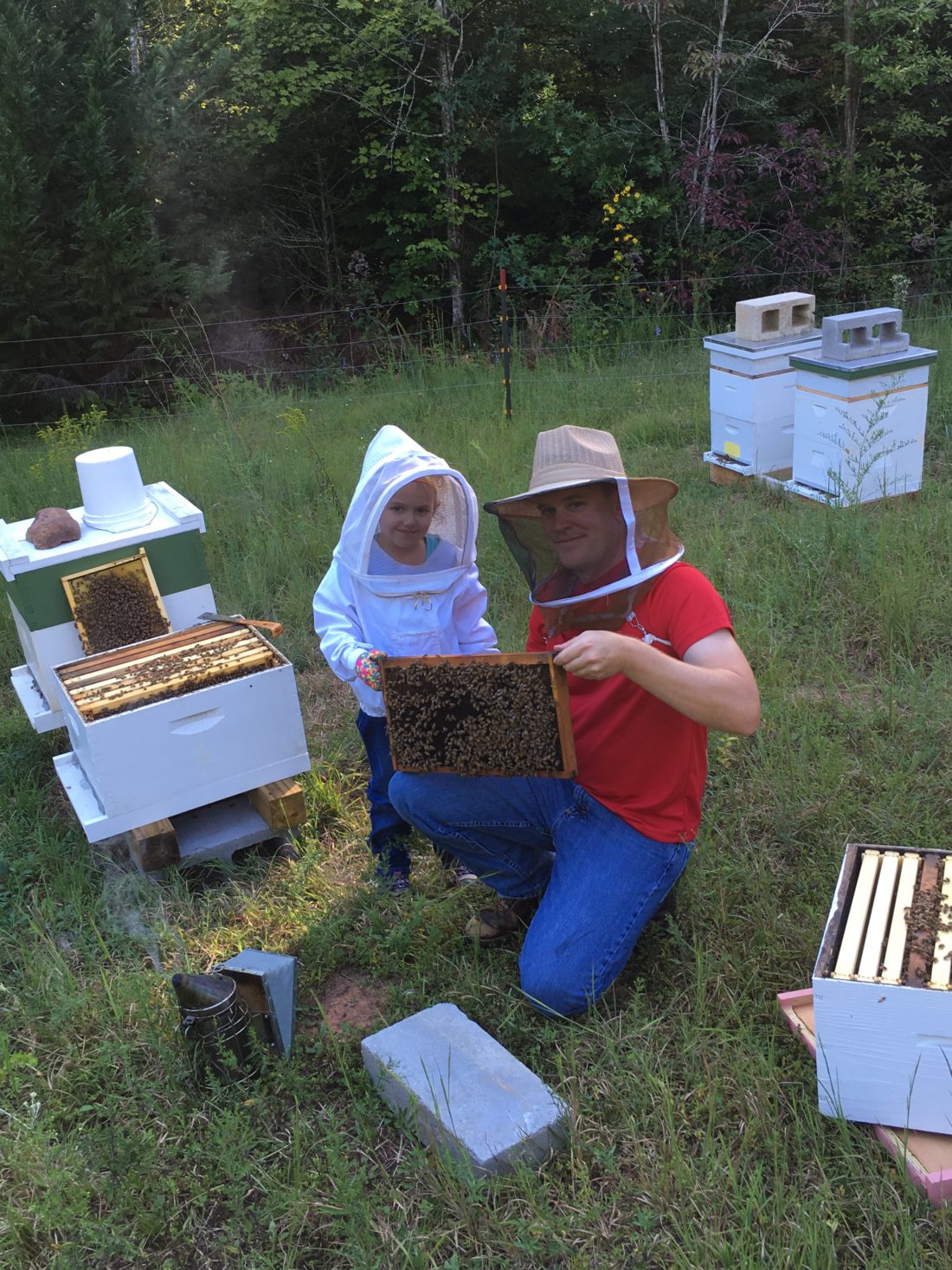Farming is an integral part of Western North Carolina’s growing economic landscape. Unfortunately, many farmers struggle to implement the projects necessary to create a sustainable operation.
Thanks to a grant program offered by the N.C. Tobacco Trust Fund Commission, many area farmers now have the opportunity to maximize the potential of both their land and equipment by expanding or beginning enterprises they otherwise might not be able to fund.
In 2003, when agricultural interests were shifting away from tobacco in the western part of the state, several North Carolina Cooperative Extension county agents noticed the hardships many farmers were beginning to face. Jennifer Ferre, interim director of WNC Communities — the nonprofit that receives money from NCTTFC and administers the AgOptions grants — says Cooperative Extension agents came together and said, “Hey, our farmers need help. They need help trying something else. They need to expand; they need to diversify. They need to do something new,” she says.
Having worked closely with the farms in their respective counties, the Cooperative Extension created WNC Agricultural Options, or AgOptions, a grant program designed to help farmers in 21 WNC counties, as well as the Eastern Band of Cherokee Indians, sustain their businesses.
“We’re able to help on the farm level and not just on the market level, and that’s a direct input, and that’s why AgOptions is so important to us,” says Jeff Camden, NCTTFC program officer. “Without [WNC Communities] as our partner, it would be much more difficult to help farmers in a more direct way.”
Supporting sustainability
WNC Communities has distributed over $2.8 million to Western North Carolina farms since 2004, and over the course of the next three years, the organization will allocate another $641,000 to eligible parties in the form of $3,000 or $6,000 grants.
Though it may not seem like much, the program makes sure these small sums go a long way. “It’s amazing to see how much $3,000 can help a farmer,” says Ferre. “[It] can be the money that they need to put them two or three years ahead.”
This is especially true for operations that use their land to sustain more than one enterprise — a common practice among small-scale farmers in the area. Franny Tacy, the first female hemp farmer in Western North Carolina, has been an AgOptions grant recipient for the past two years, using the money to fund her lambing and poultry operations. With a $6,000 grant, she was able to build a small metal barn and install rotational pastures for her lambing operation, saving her money on labor expenses. Another grant for $3,000 supported the purchase of poultry incubation and hatching equipment, allowing her to go from producing around 500 chicks per year to 3,000.
Tacy says the grants played a significant role in jump-starting both the poultry and lambing aspects of her farm, taking her business to levels she would not otherwise have expected to see for at least another five years and 10 years, respectively. “That’s how it is for a lot of us farmers. We’ve got ideas and we’re super-duper creative and can make and can do anything. But getting the initial cost to start up an operation … that becomes profitable and feeds into a sustainability model, it just requires funding,” she says. “And what we’re all looking for as farmers is to make farming a viable profession again where it’s profitable.”
For the many farmers who juggle more than one project, it’s fortunate that grants are available from a diverse range of sources. Ferre says she sometimes points AgOptions applicants toward other opportunities, such as the grants offered by the Buncombe County Soil & Water Conservation District, that might be better suited to their needs or could complement AgOptions funding. Farmers are allowed to receive only a total of three AgOptions grants, and applicants can’t be eligible for two NCTTFC grants at one time, so considering funding streams from other organizations can double an applicant’s prospects.
“A lot of those add up, and they make a really big difference for us being able to make progress and move forward in our business,” Tacy says.
Field of dreams
Landing an AgOptions grant, however, is no easy process. WNC Communities receives about 100 applications annually, and in 2018, only 43 farms were awarded funding.
When reviewing proposals, Ferre says her organization looks for strong projects rooted in experience and careful planning with the potential to benefit the business for years to come. Priority is given to producers with a history of growing tobacco, and she’s noticed what seems to be a trend toward newer farmers.

Dakota Youngblood, 20, is a 2018 AgOptions recipient with big ideas. His goal is to put his family’s Fletcher farm, His Harvest Farms, back on the agricultural map with a full-blown revitalization project. Youngblood used his $4,000 award to buy a massive irrigation system, which he describes as the “heart of the whole entire farm,” enabling him to set his plans into motion.
“I kind of wanted to take the torch and just start farming again,” he recalls. “I had to start pretty much from scratch with an open canvas.” Youngblood’s great-grandfather had raised everything from tobacco to corn on the land, but 30 or 40 years ago, the family started using the acreage for cattle. When Youngblood turned 17, he took the initiative to return to cultivating crops.
Now working alongside his father on a farm that’s been in his family for hundreds of years, Youngblood is beginning to see his childhood dream become reality — this year’s harvest yielded everything from sweet corn to okra to greasy beans. And his father has encouraged him every step of the way.
“He saw the fire in my eyes, and he pushed me to do it,” says Youngblood. “It helps me out in the long run to be beside him and do what we love and let him watch this dream that I’ve been trying to acquire for many years become attainable.”
Grants also support agricultural hobbyists who need a little boost to expand their operation into a full-scale business with potentially lucrative returns. A $6,000 AgOptions grant helped Jordan Smith expand the apiary for his Bryson City-based Two Girls Honey Co., which produces sourwood honey that Smith markets locally.
And since honeybees are such an integral part of a healthy environment and play a crucial role in pollination of crops, Smith hopes his efforts will benefit both the community and ecosystem at large. “For the level of production that we’re talking about here on these family farms and these larger commercial farms, the level of pollination wouldn’t be possible without honeybees,” says Smith.
In the future, he plans to expand to the point where he can sell bees to other beekeepers. “The more that we can support even hobbyist beekeepers, the better it is for the bees and for agriculture,” he says.
Ripple effect
Passion for the community appears as a common thread among AgOptions recipients who take time to consider how they might aid in the growth of other local enterprises. Justin Taylor, winemaker at Parker-Binns Vineyard, sees great value in the network AgOptions creates for its grant holders. The majority of recipients have met each other in person, at least informally, and he views these relationships as opportunities for future collaboration — a side effect of the grant that could one day prove to be more important than its direct monetary benefits.
“A lot of those ideas are obviously still in the wings, but they’re going to be much easier to execute considering we all have that common relationship now,” he says.
For now, Parker-Binns is focused on its latest expansion, a project made possible by a $6,000 AgOptions grant. A new production building, crush pad, larger press, processing table and destemmer will allow the business to move to the status of fully established commercial winery while also increasing its cider production arm, which originally began as a small side venture.
Taylor says that missing out on the AgOptions opportunity would have put his operation at a real disadvantage. “It would have limited our chance to have such an impact on our local area or the industry but also for our customer,” he said. “It’s definitely seeded us to work for it again.”
Innovation and community involvement are essential components in drafting a strong application for an AgOptions grant, says Ferre. While it’s not common for grant recipients to have their projects fail, a potentially risky undertaking is sometimes encouraged as it serves as an educational experience for both the farmers and the community as a whole, inspiring ideas and leading to a better understanding of the nuances associated with a given enterprise.
Many farms have started offering workshops and other educational opportunities for those interested in their specialty — a favorable attribute in the eyes of WNC Communities — which can create a ripple of knowledge that spreads throughout the agricultural community.
“[Education] supports our own goals of sustainability, and the best way for farmers to even be more sustainable themselves is to teach them,” Tacy says. “Cast the stone. And that’s what AgOptions gives us — the stones to throw in the pond.”
WNC AgOptions is currently completing its application process for 2019 grants. For details on how to apply for the 2020 cycle, visit wncagoptions.org.



Before you comment
The comments section is here to provide a platform for civil dialogue on the issues we face together as a local community. Xpress is committed to offering this platform for all voices, but when the tone of the discussion gets nasty or strays off topic, we believe many people choose not to participate. Xpress editors are determined to moderate comments to ensure a constructive interchange is maintained. All comments judged not to be in keeping with the spirit of civil discourse will be removed and repeat violators will be banned. See here for our terms of service. Thank you for being part of this effort to promote respectful discussion.